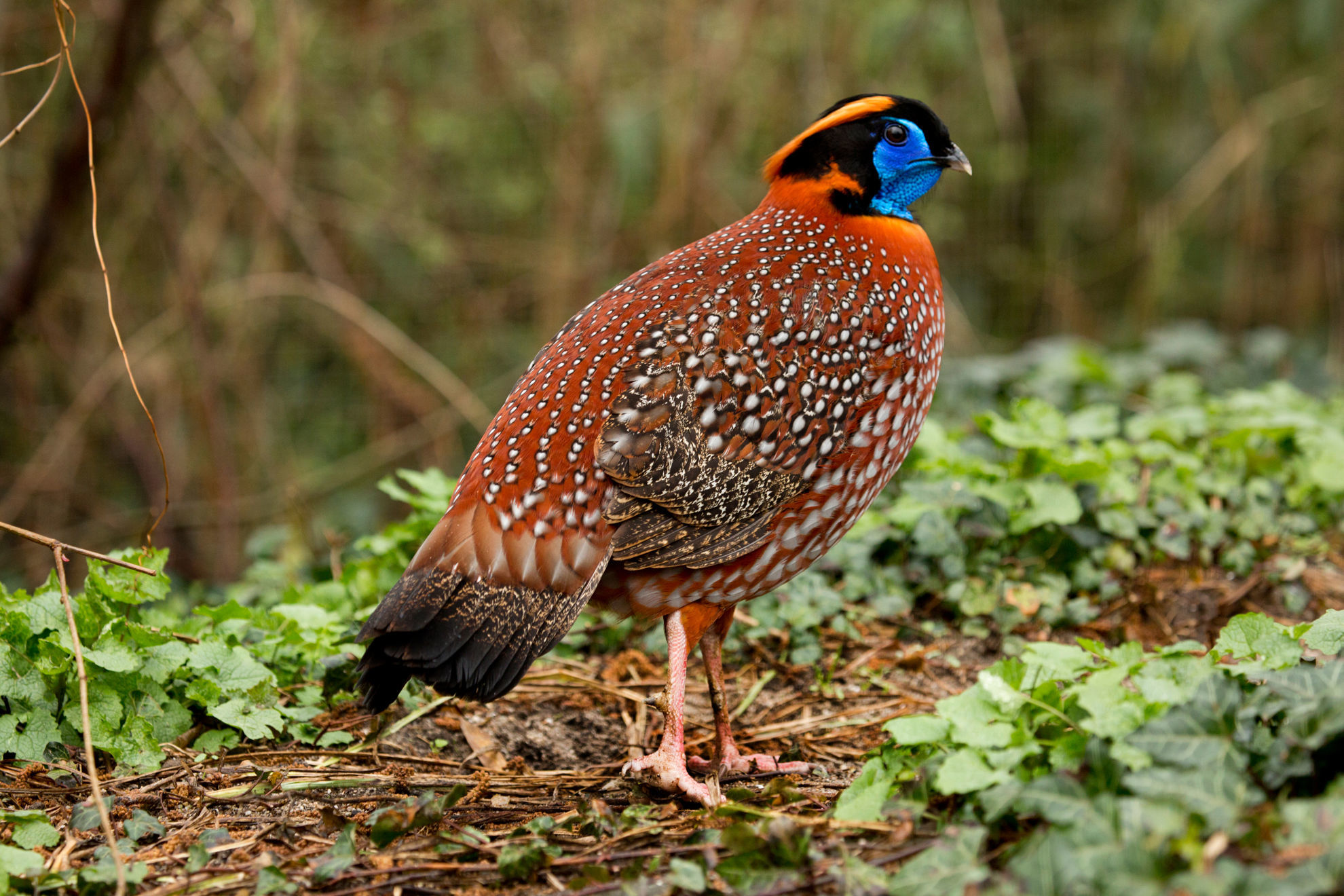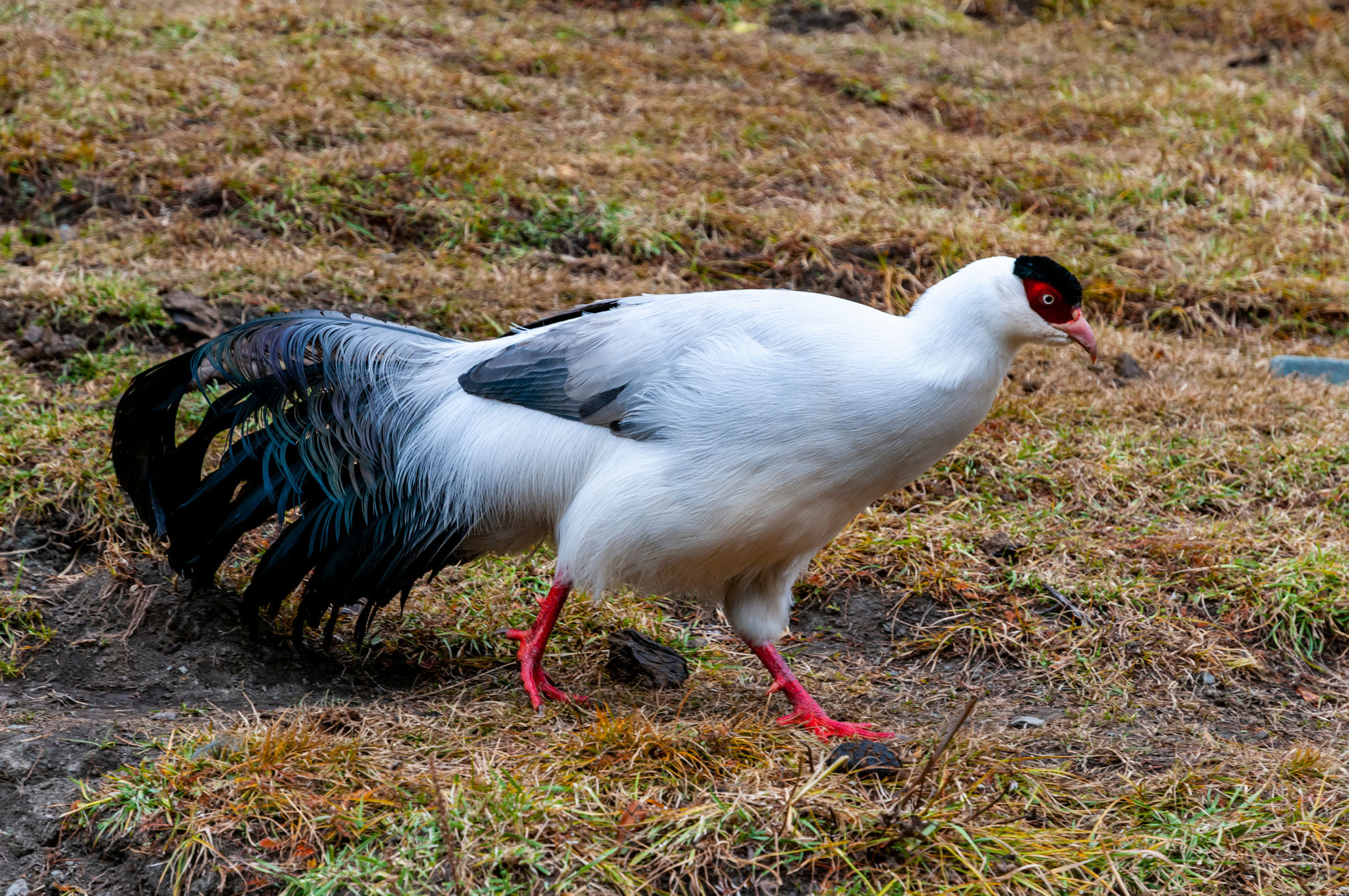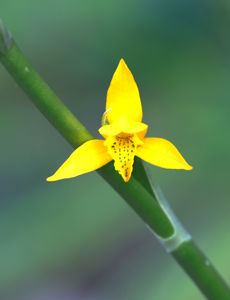Toll Free: 800.328.8368
Phone: 512.328.5221
Classic China: Sichuan Province
Upcoming Dates
May 1 - 21, 2027
Departs
Chengdu
Returns
Chengdu
Tour Limit
Sold Out
Itinerary
Forthcoming

Temminck's Tragopan © Podolnaya Elena/Shutterstock
VENT’s return to China focuses on the beautiful province of Sichuan. We will explore a wonderful diversity of landscapes, each home to endemic birds, passage migrants, seasonal residents, and many of the most ancient surviving Asian plants and animals.
China is in many ways a world of its own. Best known in this era as an industrial juggernaut, China is in fact an outstanding place for birds and wildlife. Sichuan province, in particular, is a beautiful part of the country, home to towering snow-clad peaks, densely forested valleys, and a superb birdlife—including more species of pheasants than anywhere else.
Sichuan is situated in one of the most ecologically important regions in Asia. Here, the eastern end of the Himalayas mixes with the edge of the Tibetan Plateau and the forests of northern Indochina to form a region of astounding diversity and abundance. Our tour focuses on the subtropical protected bird-rich forests of Labahe and Wawushan, picturesque alpine settings at Balangshan and Tangjihae, and the rolling grasslands and freshwater meadows of the eastern Tibetan Plateau (home to nesting Black-necked Cranes).
Our visit is timed to coincide with the first few weeks of spring, when many resident birds are singing, while spectacular species such as Temminck’s Tragopan; Tibetan Snowcock; and Blood, White Eared, and Golden pheasants are generally easier to see. At this time, large numbers of passage migrants are moving north to their breeding grounds, and this increases the exciting mix of birds we will encounter. Just about every species is in full breeding plumage and at its songful best. Plants and trees will be bursting into life, and for the botanists among us, there will be the added delight of seeing very different species in flower and even representatives of quite familiar families. Mammals, in hibernation throughout the cold winter months, will be emerging from their dens.
With the rapid pace of growth in China, its accessibility to birders has never been greater. Add to this greatly increased governmental protection of forests and wildlife, and modern accommodations and infrastructure, and we have the perfect conditions for immersing ourselves in the majesty of this beautiful province.
Good to excellent accommodations; food good to very good (the Sichuan cuisine particularly tasty and served banquet style); relaxed birding with generally light to moderate physical demands; climate varies from warm and occasionally hot and humid to cool and mild with cold conditions likely at high altitudes and the slim possibility of snow.

White Eared-Pheasant © Shutterbug Tracy/Shutterstock
Price: $7,245 in 2022
This departure is sold out. Please contact the VENT office to register for the waitlist.
Departure Dates
Route Map

Tour Leaders

Local
Leader
Field Reports
Available by request; please contact the VENT office.
Connecting Tours
No Connecting Tours
Operations Manager

Celeste
Dillon
Questions? Contact the Operations Manager or call 800.328.8368 or 512.328.5221



